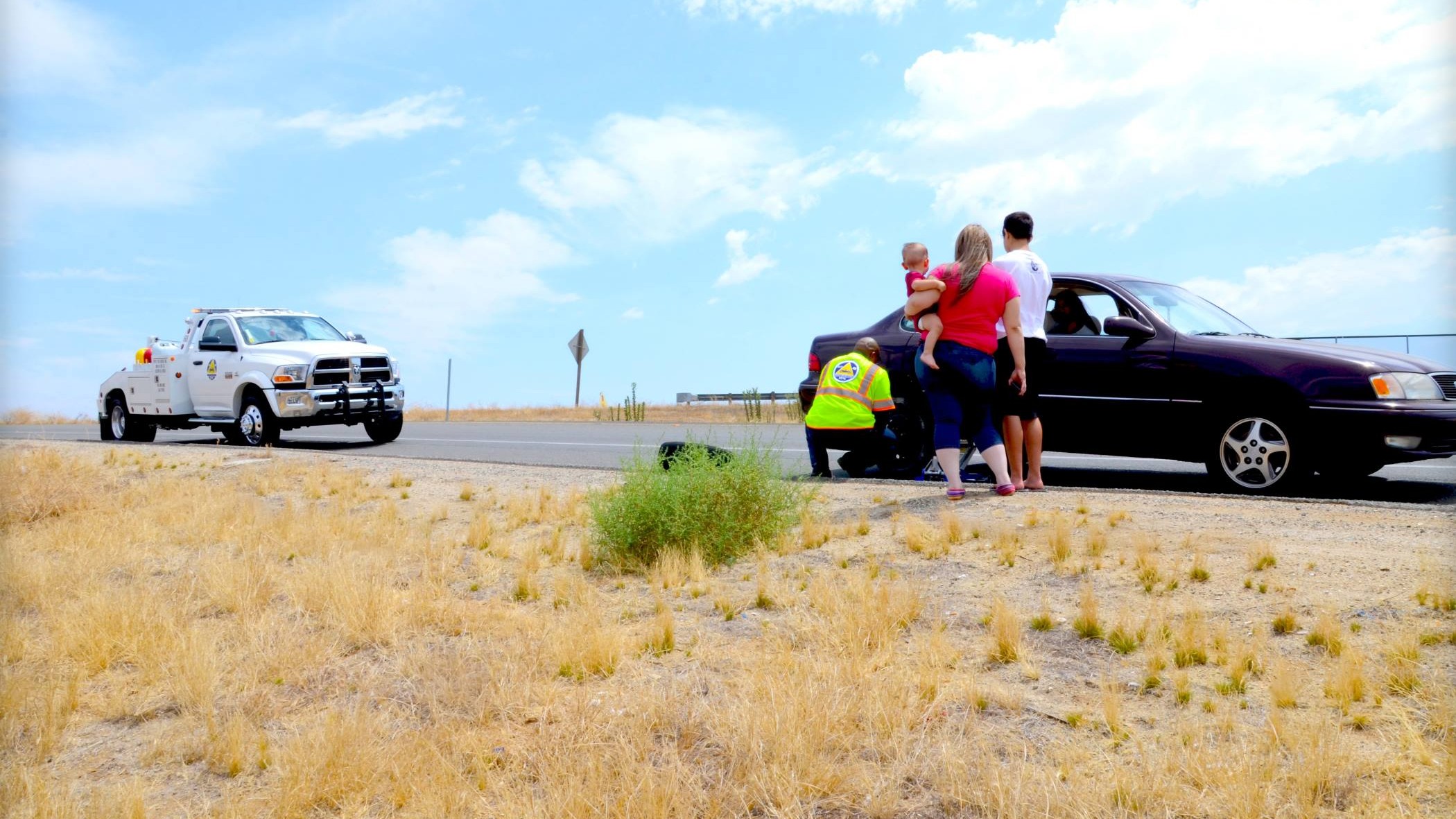The Point: From getting your car ready to Freeway Service Patrol and 511, it’s easy to be ready for the road ahead
Summer is winding down and many of us are gearing up for one last adventure on the open road. Whether you’re planning a long road trip or just commuting locally, a little preparation goes a long way to ensure a safe, smooth ride. Here are some essential tips from RCTC to help you travel smart this season.
Before you set out, it’s critical to inspect your vehicle. Check your tires, brakes, fluids, and lights to ensure everything is in good working order. It’s a good idea to stock your car with some key emergency items like a spare tire/sealant, first-aid kit, flashlight, and jumper cables. Also, don’t forget to pack water, snacks, a phone charger, and any emergency supplies you might need.
Planning your route ahead of time can help you save time and avoid unnecessary frustration. Use resources like SoCal511.org or dial 511 for live traffic reports and transit planning assistance in southern California. This free service is an excellent resource for identifying rest stops and planning alternative routes when needed.
Despite all the best preparations, breakdowns can still occur. If you find yourself stranded on one of Riverside County’s many freeways, the Freeway Service Patrol (FSP) is available to help. These specially marked yellow and white tow trucks have the FSP logo. They cover key highways like the SR-91, I-15, SR-60, and I-215, and their drivers can assist with services like jump-starting your battery or providing a gallon of gas — at no cost to you.

If you experience a breakdown, remember to move your vehicle to the shoulder and stay inside with your seat belt fastened. FSP patrols operate mainly during peak commute times. If you need immediate assistance, don’t hesitate to call 911 — especially if you are in a dangerous situation.
For non-emergencies, you can reach out to CHP Dispatch or your roadside assistance provider, or even a friend or family member for help.
As you travel along Riverside and San Bernardino County highways, you might notice all the roadside call boxes have been removed. With most drivers now using mobile phones to contact roadside assistance directly, call box usage has declined significantly in recent years. As a result, regional transportation agencies have begun phasing out the call box system in favor of more modern methods of assisting motorists. It’s important to keep this in mind when traveling throughout the Inland Empire.
Smart driving doesn’t just happen — it starts with small habits. A quick safety check and being prepared for the unexpected can turn any trip into a wonderful adventure. Enjoy your summer travels and stay safe out there!
